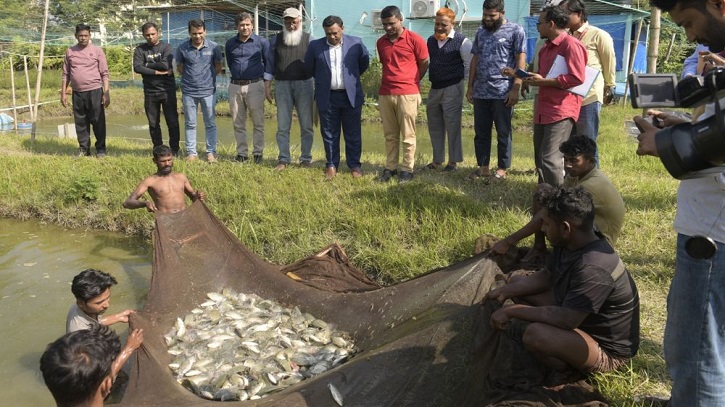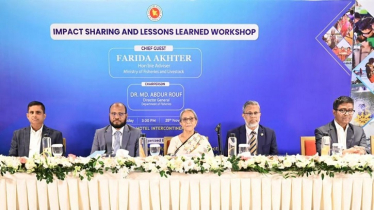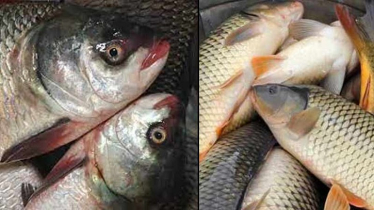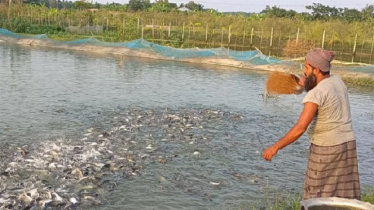
A research initiative at Noakhali Science and Technology University (NOBIPROBI) has reported a major breakthrough in tilapia production through the optimized use of aerators in aquaculture. Led by Professor Dr Abdullah-Al Mamun of the Faculty of Fisheries Science, the three-year study found that combining diffuser disk aerators with paddle aerators ensures uniform oxygen distribution in pond water, enabling tilapia yields to increase by nearly three times compared to conventional methods.
The research team noted that although many farmers across the country already use aerators, a lack of knowledge about the correct timing, duration and type of aerator required has prevented them from gaining the full benefits of the technology.
According to the findings, tilapia production increased to 20–22 tonnes per hectare over a five-month cycle, whereas previous maximum yields were limited to 7–8 tonnes.
The cost efficiency also improved significantly. While aerator operation requires about Tk 70,000 in electricity costs, farmers save at least Tk 150,000 on commercial feed. In addition, the higher harvest brings in more than Tk 1.5 million in extra revenue.
During a field visit, NOBIPROBI Vice Chancellor Professor Dr Muhammad Ismail said that integrating solar-powered aeration systems could create a fully renewable fish farming model. He added that widespread adoption of the technology would make protein more accessible nationwide and open new prospects in environmentally sustainable aquaculture for export markets.
Professor Dr Abu Tayeb Abu Ahmed, representative of the Bangladesh Academy of Sciences and member of the technical committee, noted that among 400 proposed projects across the country, only 30–32 receive approval and NOBIPROBI’s initiative is among the notable ones. He said the results clearly indicate that aeration can potentially double fish production and praised the university’s strong research capacity.
Project Director Professor Dr Abdullah-Al Mamun said the team achieved double yields using minimal land and water through optimized aeration. He emphasized that farmers could benefit greatly once the technology reaches the production level.
Assistant Director Professor Dr Debasish Saha highlighted that the team is utilising solar energy to ensure low-cost aerator operation even in remote areas, enabling farmers to increase output sustainably.
Researchers added that new trials using solar systems combined with HDPE liners are underway to further enhance productivity. They expressed optimism that once adopted at the farmer level, the technology could spark a new revolution in fish production across Bangladesh.





